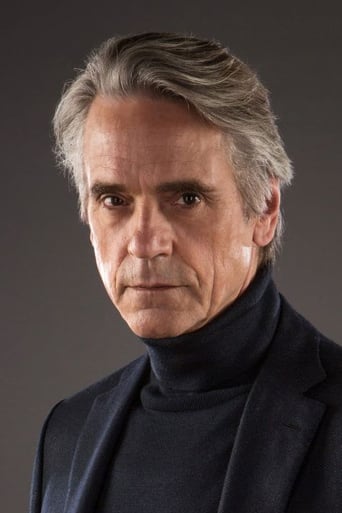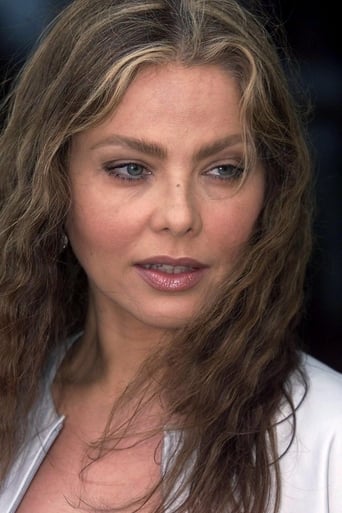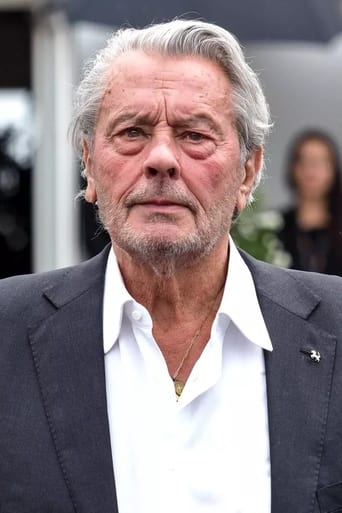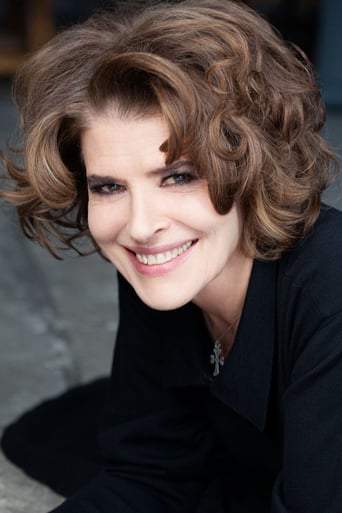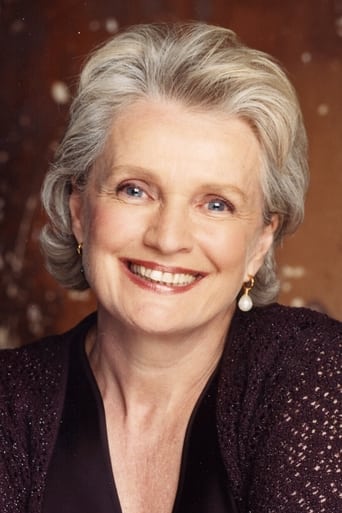Diagonaldi
Very well executed
Pluskylang
Great Film overall
Doomtomylo
a film so unique, intoxicating and bizarre that it not only demands another viewing, but is also forgivable as a satirical comedy where the jokes eventually take the back seat.
Armand
strange construction. remarkable recreation of atmosphere, few drops of Proust novel -as discreet homage - a nice Charlus, a voluptuous Odette and correct Swann. details of a world in who mannerism is part of fall. good acting, interesting description of obsession, seductive tale about life style of aristocracy levels. and if you do not read the confession of Marcel, all is OK. but in case of error, the taste is not good. a slice of perfect universe remains a slice. the good intentions are far to be steps of adaptation. the flavor is present, the voices are at perfect place, the images are parts from the cake but result is a poor drawing. sure, it is an exercise." A la recherche de temps perdu" is out of any adaptation. but important is the fact than it is not a really disappointing film. that is the key.
grandisdavid
I really admire the work of Volker Schlondorff, I think he is one of the best German director nowadays with Wenders (although in a very different style). His adaptation of Proust is quite good but several things really annoyed me. _first, the soundtrack: why using an atonal composition of Henze when Proust, who loved Wagner, filled his novel with specific musical references? It simply does not fit the atmosphere! Any chamber music of the late nineteenth or early twentieth centuries would have been better! _second, the acting: I am french and I really think Alain Delon is way overrated, he's simply mediocre. However, I really like Jeremy Irons, and Ornella Muti is usually quite good, but their dubbing is absolutely awful and ruins totally their acting! So I understand that Irons would have had a very strong English accent if he had been asked to act in french but if Schlondorff decided to shoot the movie in Paris with 90 percent of the cast being french, why in the hell didn't he choose two other french actors for the leading roles? I have nothing against English actors, on the contrary, but then, he should have shot the movie in English rather than dubbing miserably these good artists. _Third, the movie is sometimes a little slow. Usually, Schlondorff does a much better job with the editing. If you want to discover the terrific job of this great director, you should rather see "The Tin Drum", "The Ogre", "The Handmaid's Tale" or "Death of a Salesman" before this one.
peedur
Terrific costuming and production design, most noteworthy is the luminous camera-work of Sven Nykvist (Bergman/Allen/Tarkovsky and others). The film is paced as languidly as narrative film making will permit, allowing a certain quality of the author's voice to be felt beneath the demands of "storytelling", one of the chief obstacles in adapting this material.I think that a masterstroke in this film is the music. While it may seem inconsequential, it draws the film into a more complex direction than typical period music would have done. I believe that this allows the film to reinvent the quality of emotional space in the material.Contemporary composers of modern chamber music like Hans Werner Henze (who'd collaborated with Schlondorff before) were brought into the making of the film. The music succeeds by injecting an atonal, dissonant, aching, atmosphere into the story. The piano and violin pieces work well against typical form and aid the narrative in a superbly contemplative manner. I was reminded somewhat of "L'Année dernière à Marienbad", simply because the musical "cues" were not spelled out in simple terms.Avoiding kitsch is part of the problem when adapting an author who discusses subjects (in epic detail) which have been filmed a thousand times before - in my opinion, the music permits yet another interpretation of that subject. At first its quietly unusual, becoming a defined, twisting voice, accenting the growing dissonance Swann experiences with Odette and ultimately with society.It is a beautiful film. My only concerns were the occasionally odd voice-over work, which was a little distracting. Ornella Muti is a knockout, but her beauty seems oddly contemporary - its as if the filmmakers were trying to make the statement that voluptuousness is eternal, while beauty standards shift periodically and culturally. Irons is excellent as Swann. I would highly recommend the film.
PayOrPlay
According to IMDB this seems to have been the first time anyone ever tried to adapt Proust to the movies. And though flawed, it's not a bad try--kind of languid, but that was probably deliberate. Jeremy Irons is one of the best at portraying repressed longing, and Ornella Muti is exquisite enough to explain Swann's amour fou.

